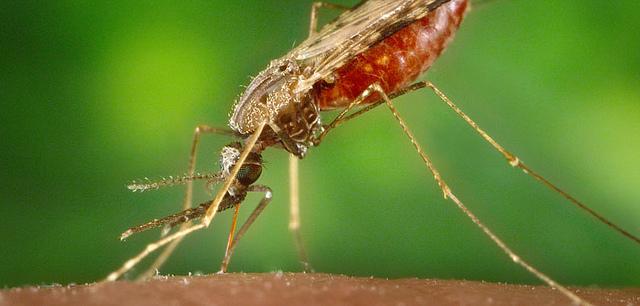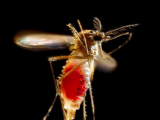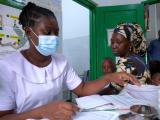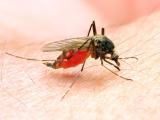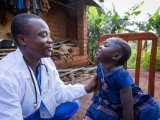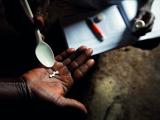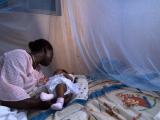A promising vaccine failed to protect children against malaria, and mass distribution of mosquito repellents failed to cut disease incidence, according to two new studies.
The first study, published yesterday in the New England Journal of Medicine, involved more than 400 children in Tanzania and Kenya who received either three or four doses of RTS, S/AS01, the first vaccine developed to fight the mosquito-borne illness.
Only 28% of children were protected against all malaria episodes in the three-dose group and 36% in the three-dose group during a 4-year follow-up. The vaccine was administered at month-long intervals to participants aged 5 to 17 months. The vaccine's efficacy waned over the study period, becoming negligible after 32 months in the three-dose group.
The authors also reported that the vaccine produced a rebound effect: After the vaccine provided 44% protection at 1 year, children who received the three-dose vaccine were more likely to contract malaria during the 7-year follow-up than were patients in the control group. This suggests the vaccine delayed exposure to the disease and altered the initial age of infection in these children, the authors said.
Still hope for vaccine
In 2015, malaria killed roughly 430,000 people, many of them African children. Because malaria can re-infect people several times before they develop immunity, an early childhood vaccine has been viewed as the best way to offer protection against the disease. RTS, S/AS01, developed by GlaxoSmithKline and championed by the Bill and Melinda Gate Foundation, is seen as a major advance in malaria control and prevention.
In an editorial on the study, John Clemens, MD and Vasee Moorthy, BMBCh, PhD, said that the results should be read with caution. A three-dose regimen is not recommended by the World Health Organization, and results from the four-dose regimen are not yet published through follow-up.
Clemens and Moorthy said there's still hope for RTS,S/AS01. "Fortunately, three other sites participating in the phase 3 trial are extending surveillance beyond the fourth year and include cohorts receiving either a three-dose or four-dose regimen; these sites will provide an important resource to test and better understand the findings of this trial," they wrote.
Topical repellents no better than nets
In further discouraging malaria news, researchers in Cambodia found that mass distribution of free topical mosquito repellents was not effective in reducing the number of malaria cases in the Greater Mekong subregion.
The Lancet Infectious Diseases published the study today, and in it researchers assessed whether individual use of topical repellents could reduce community rates of malaria in 98 villages.
Study controls received one long-lasting insecticidal net and one placebo repellent per individual, whereas those in the intervention group received the net, plus picaridin KBR3023, made by SC Johnson. Subjects were given instruction on daily use and application of the repellent, which has previously been proven safe and effective against mosquito bites.
Both the control group and the intervention group had similar rates of malaria in follow-up surveys, between 2.96% and 4.23% in the control group, and between 3.44% and 4.86% in the group using nets and picaridin.
The authors said the main obstacle was compliance and human behavior; daily application and appropriate use of the repellents was reported in only 59% of study respondents.
"We conclude that mass distribution of topical repellents in addition to long-lasting insecticidal nets has no added public health value in preventing malaria," the authors said.
See also:
Jun 29 NEJM study
Jun 29 NEJM editorial
Jun 30 Lancet study
Jun 30 Lancet commentary
